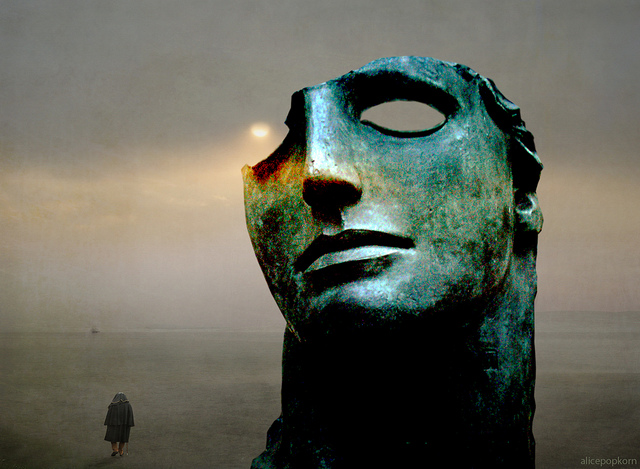
The worship of the gods is not what matters, Brendan Myers says. People and relationships matter.
Even as someone who helps to provide others with the tools to worship their gods, these liturgies of the Fellowship, I find myself reading his words and saying — Yes. This is correct.
This is not the only correct thing, and if someone said with conviction that worshipping the gods matters I might agree with them, too. I might agree if they explain the way in which it matters to them. They would be hard pressed to convince me of why it matters to the gods.
That argument has always fallen flat for me.
To squeeze a deity into a human form, whether that be the literal Galilean (form in his case a body) or the certainty of what a god might want from me (form as projection), seems misguided; perhaps even a misuse of our faculties and energies.
I do not feel threatened by what Brendan says. In fact, I feel empowered by it. He writes:
My path is the path of a philosopher, and it is a spiritual path. It’s about finding answers to the highest and deepest questions that face humankind, and finding those answers by means of my own intelligence. It’s about not waiting for the word to come down from anyone else, not society, not parents, not politicians or governments, not teachers, not religion, not even the gods. In that sense it is a humanist activity, but it is an activity which elevates ones humanity to the highest sphere. That is what matters. This was the path of all the greatest philosophers through history. It was the path of the great pagan predecessors like Hypatia and Diotima and Plato; and also the path of more recent predecessors like James Frazer and Robert Graves. This is the path of knowledge; and knowledge is enlightenment, and knowledge is power.
This integration of philosophy, spirituality and humanism is so inviting to me. His words read rich to my heart, and I’m still piecing together the reason why.
Perhaps in part it is because I am considering pursuing a degree in Philosophy, a new development in the past several weeks. I have been asking myself, Why would one study philosophy? What would be the value for a person such as myself? As I write these questions on this blog, a blog of dialogue and inquiry and uncertainty and personal revelation, I feel like I know exactly why this would be valuable for me.
Yesterday I wrote a short essay for a scholarship application, and doing so brought a great deal of clarity as to why this move would make sense for me.
An excerpt:
I seek a Bachelor’s Degree in Philosophy and a minor in Religious Studies with the intention to one day pursue a Masters of Divinity. I believe that before one can commit one’s self to the service of others one must undergo a process of refinement; a honing of one’s critical thinking skills, something akin to the tuning of a bow. Being human is an art form, but it is also a discipline; one dependent upon the faculties of the mind as well as the expressions of the heart. To study philosophy, accented with the study of religion, would help to place the two in greater context with one another – the mind and the heart.
The gods may indeed be wrapped up in this endeavor. When I light a flame for my goddess, and I invite her to transform me, to refine me, to envelop me and change me into something better, I do it without reservation. My rationality does not dissect this action. This is a relational act. A devotional act. One might say it is an act of faith, and I’m not sure they would be wrong.
But I also see the refinement of myself as something for which I am solely responsible. Should I wish to walk this path and prepare myself for a life committed to service I will need to shore up my strength and charge forward alone. If I make the choice to pursue this line of study, to commit myself for the next four years to being a student of knowledge, it will not be faith that carries me through: it will be conviction, perseverance, and courage. This will be a human endeavor, a human challenge, and ultimately, a human goal.
The gods may be with me, in my heart and in my mind, but it will still be — as always — a solitary journey.
I wonder…
What are you impressions of Brendan’s piece? What does it inspire in you?
What do you think about the study of knowledge? How do you think philosophy plays into an integrated spiritual life?
Leave a Reply